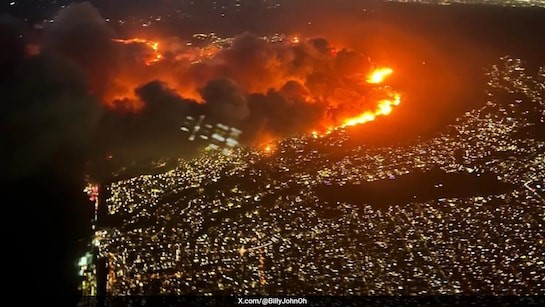South Korea is grappling with a rapidly unfolding political crisis as President Yoon Suk Yeol faces mounting pressure following his failed attempt to impose martial law. The shocking move last Tuesday night, intended to seize control amidst growing opposition, was short-lived and defeated before even making the front pages of the newspapers.
As per the sources of Leaders team, the president, once contrite and apologetic in an effort to avoid impeachment, has transformed into a defiant figure, vowing to fight on even as impeachment looms. Accused of treason—a charge punishable by death—Yoon is now banned from leaving the country and faces a second impeachment vote this weekend, as support from his party dwindles and protests against him swell.
A Failed Power Grab and Rising Defiance
Initially, rumors suggested a possible deal where Yoon would step down early to avoid being ousted by his party. However, according to the Leaders team sources, by Thursday, the president emerged obstinate, defending his martial law attempt as a measure to “protect democracy” and lashing out with unsubstantiated conspiracy theories. Among his claims was the suggestion that North Korea may have interfered in the elections, leading to his party’s failure to secure control of parliament.
While Yoon remained in hiding, police raided his offices for evidence. Meanwhile, his party announced he would no longer have decision-making power, though legal experts argue there is no constitutional basis for such an arrangement. This has left the country in a state of uncertainty, with senior military commanders openly stating they would defy Yoon’s orders if martial law were declared again.
Public Outrage and Political Fallout
Protests have erupted nightly, with thousands of South Koreans braving freezing temperatures to demand Yoon’s impeachment. The anger has extended to members of his own People Power Party (PPP), who initially shielded the president but now face public ire. Protesters have begun calling for the dissolution of the party itself, accusing lawmakers of enabling Yoon’s actions.
After days of stalling, PPP leader Han Dong-hoon urged his colleagues to impeach the president, declaring, “The president must be suspended from office immediately.” For impeachment to pass, two-thirds of parliament must vote in favor, requiring at least eight ruling party MPs to side with the opposition.
Defecting lawmakers, such as Kim Sang-wook, have faced intense backlash, including death threats and accusations of betrayal. Despite the hostility, Kim believes impeachment is the only way forward, calling Yoon “totally unfit to lead the country.”

A Nation in Crisis
The crisis has exposed the fragility of South Korea’s political system. While the swift rejection of martial law demonstrated the strength of democratic institutions, the subsequent infighting and party maneuvering revealed deep vulnerabilities. Critics have labeled the PPP’s attempts to retain Yoon as a “second coup.”
Beyond domestic turmoil, the crisis has damaged South Korea’s international standing. President Yoon had envisioned the country as a “global pivotal state” and hoped to elevate South Korea to the ranks of the G7. Instead, his actions have drawn international concern, with Western diplomats calling for a swift resolution to restore stability.
The Fight Ahead
If impeached this weekend, Yoon has signaled he will not leave quietly. A former prosecutor, he plans to challenge the decision in court, prolonging the political turmoil. The shockwaves of his attempted power grab and its aftermath are expected to reverberate through South Korean politics for years to come.
Amid the chaos, however, there is hope. South Koreans, resolute in their commitment to democracy, continue to protest in defense of their rights. As Professor Yun Jeong-in of Korea University stated, “This is an aberration, not a systemic failure of democracy. People are not panicking; they are fighting back.”
The coming days will be pivotal in determining the future of South Korea’s democracy and its place on the global stage.









